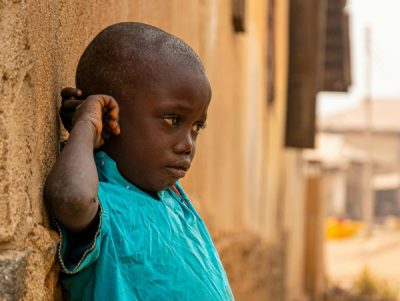Vanishing Echoes: Black Populations Are Disappearing

African Identity is being erased (Image: Seun Adeniyi @Pexels)
Vanishing Echoes: Understanding the Erasure of Black Populations Around the World.
Across continents and centuries, Black communities have shaped the world in powerful ways. Yet, in many parts of the globe, their presence has been slowly, steadily, and systematically erased through violence, laws, education, and silence. This article traces the hidden histories and fading footprints of Black populations around the world, highlighting the urgent need for African nations (especially those in Southern Africa) to learn from these losses and protect their cultural heritage.
In Australia, the land echoes with the long silence of the first people. Aboriginal Australians have called the land home for over 60,000 years. But their survival has been met with relentless attempts at cultural annihilation. British colonization in 1788 marked a dark turn: land was seized, people were massacred, and communities were torn apart. Perhaps the most haunting chapter was the “Stolen Generations”, where Aboriginal children were forcibly removed from their families to be raised under white institutions. Today, these communities face crushing poverty and incarceration rates. This is erasure not just by the sword, but by social policy, silence, and shame.
In India, dark-skinned people endure a quiet struggle with social incarceration into the lowest caste classes. Dalits are historically oppressed under the caste system, causing them to carry another burden: darker skin and features that echo African ancestry. While not defined strictly by race, their marginalization reveals how societal status can mirror racial caste systems elsewhere. The documentary India Untouched by Stalin K sheds light on this harsh reality. English education became their rebellion and redemption. But the deeper lesson? Discrimination finds many masks; sometimes it’s race, sometimes it’s class. Often, it’s both.
Black Latin Americans face chains and Census erasure. Take Argentina, which was once home to a thriving Black community that made up nearly 30% of the population. Today, Afro-Argentines are less than 1%. Why? Some were lost in wars, others erased by census policies that classified Blackness out of existence. Across Latin America, Black heritage lives in art, music, and food—but not always in politics, wealth, or power.
In Brazil and Colombia, Afro-descendant communities still battle systemic poverty. But they also preserve rich legacies—from Capoeira in Brazil to the rhythm of Cumbia in Colombia. The book Race and Ethnicity in Latin America by Peter Wade examines these legacies. Their visibility may be fading in official statistics, but their resistance roars in culture.
In the Middle East and North Africa, the existence of African ancestors is being systematically erased. Few remember that millions of Africans were trafficked through the Arab slave trade into the Middle East. Their descendants—Afro-Iraqis, Afro-Iranians, and others—still live today, often unacknowledged and marginalized. In North Africa, despite the undeniable ancient Black presence, anti-Black sentiment festers, wrapped in silence and denial. Here, erasure takes the form of cultural assimilation without recognition—a quiet forgetting.
Then, there’s Europe, where the Moors once reigned. Between 711 and 1492, the Moors—many of African descent—ruled parts of Spain and Portugal, contributing to science, art, and architecture. Black figures once stood as saints, royals, and poets in medieval Europe. But post-Enlightenment Europe began rewriting history, whitening its heroes and burying the Black presence in the footnotes. It’s a classic case of rewriting the past to control the present. The book When We Ruled by Robin Walker offers a sweeping overview of the African global impact, including in Europe.
How Can We Stop the Cycle of Erasure?
Even in Africa, the threat of erasure looms. In Southern Africa, pressures from global media, elite assimilation, and rapid land reform have distanced youth from their indigenous languages and traditions. Economic dependency on global powers threatens cultural sovereignty. The risk is real: if Africa does not protect its history, it too could lose what others have already forgotten—its identity, its memory, its soul.
The African Union Cultural Charter (2020) stresses the need for cultural sovereignty through language, memory preservation, and traditional knowledge systems.
We must act now. The first step is to document our oral histories, languages, and cultures. We need to reform education so African children grow up proud of their roots. Let’s support indigenous languages in schools and the media; fund storytelling—through films, books, music—that amplifies authentic African voices. And most importantly, we must confront and challenge revisionist history at every turn.
Can erasure happen without war? Absolutely. Just ask Argentina. Erasure doesn’t always come with guns. Sometimes, it arrives in silence. In policy. In textbooks. Can education erase a people’s history? Yes, and it can also restore it. With vigilance and vision, Africa can be the place where Black identity is not only remembered—but reawakened and revered. Can the youth protect their culture? Only if we equip them to do so. So let’s do it now. Let us not forget.
Feelnubia – Home of Africa’s Intelligentsia
“Where Memory Lives.”
Recommended: The Missing Black Populations of North Africa
Watch the Short Video
#Feelnubia #NorthAfricaErased #BlackHistory #PanAfricanism #Feelnubia #AfricanHeritage #BlackExcellence #ReclaimAfricanHistory #KnowYourRoots #HiddenHistories #BlackIdentity #DecolonizeNarratives #DiasporaStories #HomeofAfricasIntelligentsia
